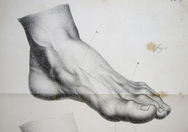 Arthritis is a painful and oftentimes debilitating condition that's characterized by inflammation within one or more joints. According to the Centers For Disease Control and Prevention (CDC), 1 in 2 people will develop osteoarthritis of the knee by the age of 85. It's important to note, however, that there are several different types of arthritis, with osteoarthritis being just one. Other common types include rheumatoid arthritis, gout, septic arthritis, Still's disease, and ankylosing spondylitis. While most people living with moderate-to-severe arthritis resort to prescription medication to mask their symptoms, a safer and more effective form of treatment may come in the form of a 2,000-plus-year-old Chinese practice called acupuncture. Numerous studies have found acupuncture to offer relief of many different types of arthritis. And best of all, it doesn't come with the adverse side effects associated with arthritis medication. Acupuncture and Arthritis: How It Works Acupuncture is based on the belief that our bodies have an essential life/energy force (referred to as Qi). This force flows through the body, traveling along 20 channels (referred to as meridians). Normally, Qi flows unrestricted, keeping the individual healthy while warding off disease and illness. However, there are times when the Qi will become stagnant, blocked or dislodged from its normal position, leaving the individual susceptible to illness. By placing thin needles directly under the skin, a licensed acupuncturists can stimulate the flow of Qi, correcting blockages and other abnormalities. Furthermore, acupuncture aids in regulating the nervous system, which in turn produces the natural pain-relieving chemicals called endorphins. Studies Reaffirm Acupuncture For Arthritis A group of German researchers conducted a study on 304,674 patients suffering from osteoarthritis of the knee. Researchers split the patients into two groups, one of which received traditional routine care, while the other received 15 sessions of acupuncture. Researchers concluded that patients who had received acupuncture experienced better knee function, less pain, and an overall better quality of life than their counterparts.
Another study – this one originating out of China – found that both acupuncture and electroacupuncture were effective at reduce pain, inflammation and tenderness in parts of the body by arthritis. Granted, this was a small study with just 36 patients, but it's just one more study attesting to the healing power of acupuncture. Contact Rebecca today to learn how you can get back on track to better health! ~guest post by Isabel Spradlin 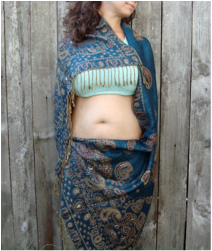 abdominaladhesiontreatment.com abdominaladhesiontreatment.com Acupuncture is such a huge help to my clients. For almost a decade I have been working with people suffering from abdominal pain and dysfunction. Along with the actual physical distress, most people suffering from belly pain are also feeling a tremendous amount of mental and emotional stress. The pain and the stress together can create such a profound loop of dis-ease that people start to lose hope that they will ever really feel better. When I sense someone is in this space, one of the first things that has to happen is that the central nervous system has to calm enough so that we can find a true starting point for their treatment. If their nervous system is too jangled, it is almost impossible to make any progress with the actual manual therapy. The tools of acupuncture are incredibly powerful in this situation. Because acupuncture has such direct and immediate access to some of the deepest energetic channels of the body, it can not only help us start to drop out of the stress response, but because it helps our nervous system actually become calmer, it can begin to relieve some of the symptoms. There is an intimate connection between the physical processes of our body and the energetic processes of our body. At times they are one in the same, at times they seem almost completely separate. Especially with chronic pain, the physical and the energetic systems are often out of synch with each other. Yes, it might be true that your digestive problems are due to very physical adhesions around your stomach or intestine or gall bladder. It might be that your struggles with infertility are at heart a result of physical restriction of your uterus. But adhesions or physical restriction rarely happen in a vacuum. There is a tremendous amount of central nervous system action throughout all of our organs and a tremendous number of energetic channels which, when functioning well, create health in every aspect of our beings. In addition, these energetic channels, if blocked or not functioning properly, can have a big impact on how we feel mentally and emotionally. If we ignore any of the pieces of this puzzle, it can lengthen treatment time by a lot. So, if you’re feeling stuck in your manual treatment, if your stress seems to be driving your symptoms or you’re just not getting the progress you were hoping for, then it may be time to try acupuncture. The tools of acupuncture offer profound access to the central nervous system, the energetic body, and our whole being. About IsabelIsabel Spradlin is a licensed massage therapist and teacher. She specializes in abdominal manual therapy. Resources for belly practitioners and for those suffering from abdominal distress can be found at abdominaladhesiontreatment.com.
Complementary and alternative medicine (CAM) is the term for medical products and practices that are not part of standard care. Standard care is what medical doctors, doctors of osteopathy, and allied health professionals, such as nurses and physical therapists, practice. 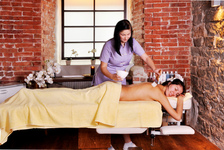 Above is the standard definition of Complementary and Alternative Medicine. Also called “CAM” for short. Essentially this term refers to anything that is outside standard western allopathic medicine. It encompasses everything from Acupuncture and Chinese Medicine to Naturopathic care, homeopathy, massage, reiki, shiatsu, energy medicine, ayurveda and on and on and on. When I hear this term, Complementary and Alternative Medicine, it always makes my skin prickle a little bit. As an Acupuncturist, I don’t find it offensive per se, but I can’t help but liken it to the term “oriental” as understood by Edward Said. This sense that by the very nature of the term, we are holding CAM therapies afar and making them “other” in a way that puts them at odds with standard care, when really there is a beautiful synergy possible between these approaches. So today I want talk about the what and why of Complementary and Alternative Medicine in hopes of dispelling this sense of “otherness.” As an Acupuncturist, my focus is on Chinese Medicine, but my hope is to help you understand that CAM therapies do not have to be “other,” “in lieu of” or opposite to standard care. They represent a different paradigm, a different approach, a safe and successful subset of options that can add to standard care in most cases when desired. AND that by working together, standard care and Complementary Medicine (my proposed term revision!) provide the broadest and most complete healthcare solution around. What is Considered Complementary and Alternative Medicine?As mentioned above, CAM is this huge category for everything other than Western Allopathic Medicine. Here is a short list of “what” is considered part of this category and some basic explanations of what to expect from each:
Why Choose Complementary and Alternative Medicine?Complementary Medicine is quite varied and has many strengths. Often times people turn to it when they feel Western Medicine has failed them, but it has so many more applications. Certainly there are many things standard care can treat that CAM therapies can treat as well just in a different or more natural way - such as pain, injury recovery, low immunity, recovering from colds and flus, menstrual irregularities, fertility, weight loss, metabolism etc - but it can ALSO serve to improve your sense of wellbeing and help you maintain a state of optimal health. Indeed, you will note that the central and overarching similarities between the Complementary therapies listed above, is the holistic approach (mind, body, lifestyle) and the focus on health, wellness and wellbeing rather than illness and disease. While each method has its own therapies and course of treatment to heal illness and correct imbalance, the ultimate goal is reach a plateau of health and, through continued monitoring and maintenance, to keep you there. This is certainly true of Traditional Chinese Medicine. Indeed, thousands of years ago the neighborhood doc was paid on a retainer because his job was to keep you healthy. This meant regular sessions to evaluate your body energetically and minute corrections to keep you there. I often think of Chinese Medicine as the most traditional science of wellbeing around, and certainly this is what I strive for in my practice - to help my patients achieve the state of health they want, and to support them through herbs, diet and lifestyle to keep them there. In this way, I believe Complementary Medicine is ideally suited to Western culture and uniquely positioned to support Standard Medicine. While Standard medicine advocates for “preventative care,” a physical exam (i.e. preventative care according to standard medicine) is only covered by insurance once every 1-3 years! A lot can happen in 1-3 years. Indeed, a lot can happen to your health in 1-3 months, especially if you are under stress. Even after a health event which lands you in the hospital, after a prescribed course of follow up treatments to address disease, there is often little to no support for wellness and wellbeing thereafter in the standard care allopathic medical system. This is where Complementary and Alternative Medicine has a perfect synergy with Standard Medicine. Just because the approach of CAM is different, doesn’t mean that it discounts standard care by any means nor that it has to be an “alternative” or other than. It simply means looking at the problem from a different angle to find the best personalized solution for you. The best solution for you may be CAM treatment only or standard care only, but for most people that are willing to broaden their view, the best solution is a combination of each based on your individual needs and health goals. Cancer treatment is a perfect example. Breast Cancer in particular is an illness we have become rather efficient at treating now, and something that is not to be messed around with or taken lightly. By combining standard care, including removal of the tumor and chemotherapy and radiation as advised based on stage and quality of life concerns, with Acupuncture in particular to decrease post chemotherapy related nausea and pain related to tumor location and surgery, patients get better faster and can take fewer pharmaceuticals to manage symptoms in recovery. This leads to improved outcomes, improved comfort and rapid healing - a win win situation for those that choose to engage in this powerful combination of therapies In ConclusionI hope I have been able to adequately convey the power of using both standard care and complementary medicine in turn, and to share with you my powerful belief that they both have an important place together!
I also hope that if you are looking to optimize your health and wellness, that you will consider looking into some “complementary medicine” options if you haven’t before. They are powerful, safe, relaxing and can truly improve wellbeing on many levels and prevent illness and injury. Until next time, thanks for tuning in! ~Rebecca 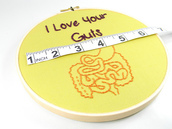 An estimated 25-45 million people in the United States suffer from Irritable Bowel Syndrome (IBS). It is much more common than many people realize. Symptoms can include
Herbal Therapies 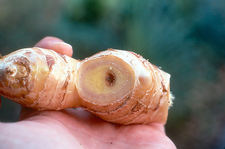 Traditional Chinese Medicine (TCM) uses herbal remedies to treat a number of ailments and diseases including IBS. Here are some of the simpler solutions that YOU can use at home:
AcupunctureAcupuncture is commonly used to treat chronic abdominal pain, bloating and other IBS symptoms. There has been at least one study done that specifically looked at acupuncture as a treatment for IBS. Acupuncture has been shown to relieve pain and stress, which are common triggers for IBS. This is done by regulating blood flow and Qi (pronounced “chee”) through acupuncture points. ProbioticsProbiotics are a healthy bacteria that normally live in your gut. It has been thought that those with IBS do not have enough probiotics in their intestinal tract. You can easily add probiotics to your diet by eating foods such as yogurt and sourdough bread. Kombucha and kefir are drinks that also include probiotics. Probiotic supplements can be found at your local health store. Meditation and Exercise
|
AuthorsRebecca M H Kitzerow is a Licensed Acupuncturist practicing in La Center, Washington. With over a decade of experience she has won 10 Nattie consumer choice awards from Natural Awakenings Magazine since 2014. Archives
July 2024
Categories
All
|
Photos from Hey Paul Studios, BeGreen_Studio, Pawel Pacholec, 1950sUnlimited, toulupaliaqaz, Joelk75, OnTask, Robert Gourley, cnu_sports, Mitya Ku, wuestenigel (CC BY 2.0), FootMassagez, 401(K) 2013, Mariana Heinz, @EdwardTerry, fishhawk, liverpoolhls, torbakhopper, Boemski, dolomitibl, Driscolltheque, Dave n Laura, Vaping360, MVWorks, Life Mental Health, MVWorks, mikefats, Scot Nelson, jfl1066, wZa HK, ruurmo, Guadalupe Cervilla, Army Medicine, GViciano, torbakhopper, adrigu, Saulo Cruz, Ben Cumming, marniejoyce, kcxd, JasonCorey, kanenas.net, Live to Create Photography, gm.esthermax, Unique Hotels Group, Zenspa1, mysiana, Tobias Lindman, Leader Nancy Pelosi, Kristoffer Trolle, swanksalot, Bill Selak, Parker Knight, stimpsonjake, Gedankensprudler, SuperFantastic, tonynetone, marniejoyce, JeepersMedia, Illusive Photography, 'Ajnagraphy', Iban Torras, scotted400, gtall1, dvanzuijlekom, BPPrice, Skley, torbakhopper, Renato Ganoza, anka.albrecht, QUOI Media, Public Domain Photos, Instant Vantage, Victor Tongdee, Free Grunge Textures - www.freestock.ca, sportEX journals, Nadja Tatar, angela n., marniejoyce, MVWorks, Karolina Kabat, Thomas Fisher Rare Book Library, UofT, ginnerobot, tracilawson, haven't the slightest, My Photo Journeys, Pierre Willemin, Florena_Presse, SuperFantastic, colindunn, zzkt, TraumaAndDissociation, ER24 EMS (Pty) Ltd., shixart1985 (CC BY 2.0), marniejoyce, Tomás Fano, freestock.ca ♡ dare to share beauty, Archives New Zealand, Jaykhuang, airdrie.m, Go-tea 郭天, OnTask, wuestenigel, focusonmore.com, Disney | ABC Television Group, Andrew Gustar, Didriks, ConstructionDealMkting, charlywkarl, barnimages.com, Lel4nd, runwaypilates, michaelstephanfotografie, McLevn, TraumaAndDissociation, eLife - the journal, Lars Plougmann, wuestenigel, shixart1985, boviate, davis.steve32, kevin dooley, @the.photoguy (insta), frederic.gombert, Feathering the Nest, Victor Tondee, shixart1985, wuestenigel, Joe K Gage, kennethkonica
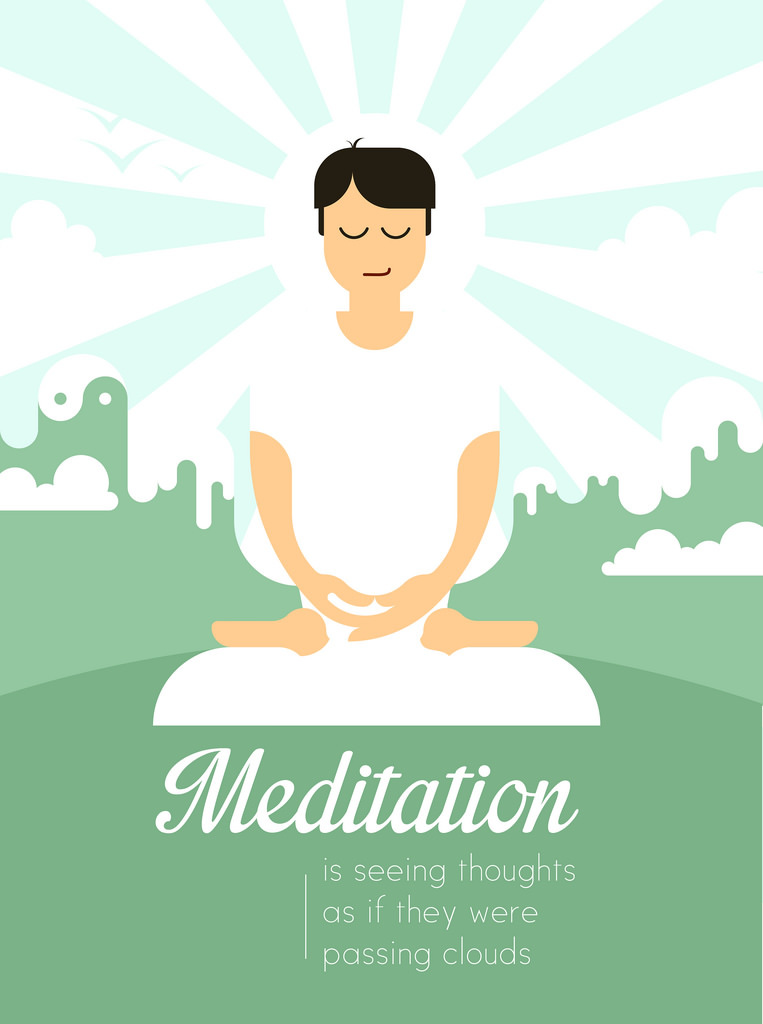
 RSS Feed
RSS Feed
